Takata Airbag Recalls: Everything You Need to Know
Unless you live literally under a rock – can we join you if you do? – you’ve heard about the Takata airbag recall. It’s been all over the news for years now affecting 37 million vehicles. Maybe you don’t know what it’s all about? Maybe you’re curious if you’re affected? It is something you should care about.
Before we get into details of what it is and why it matters, it’s important to know if you’re affected. To find out, you’ll need your Vehicle Identification Number (VIN), which you can find on a plaque on the driver’s side of your vehicle where the dash meets the front of the car.
Then, head to SaferCar.gov, the government’s website for tracking recalls, and see if you have any active recalls. You should have them all fixed if your car has them, but the airbag recall is the important one we’re talking about today.
Now that you’ve hopefully checked – we’ll remind you later, too – let’s dive into why the Takata airbag recall is important and why you should take it seriously.
Who is Takata?
Takata is a parts supplier for the automotive industry. Every automaker uses 3rd-party suppliers to source parts for their car. They do not manufacture each component themselves.
In theory, a supplier who specializes in certain parts can produce a higher-quality component for less money, which saves the automaker money and makes vehicles more-affordable.
Takata makes the airbags in a great number of cars today. The inflator, which is the subject of the recall, is a critical component to an airbag. It’s the device that deploys the bag when an accident is detected.
What’s wrong with Takata airbags?
Many airbag inflators use a chemical called ammonium nitrate for the propellant. Through research into the airbag failures, it was determined that the ammonium nitrate-based propellent is susceptible to environmental conditions.
In humid climates especially, when an airbag is deployed it might not deploy completely or properly. More dangerously, the inflator tube might explode and send shrapnel into the cabin.
Other factors come into play, including the overall temperature and age of the airbag system, but humidity seems to be one of the major causes.
This can be prevented by having an inflator that includes a chemical drying agent. Think of these chemical drying agents like the silica gel packets you get in a pack of beef jerky. They help to keep the moisture out.
The ramifications could be more serious than moldy jerky; so far 15 people have died as a direct result of this airbag malfunction.
Is every airbag defective?
No. While millions of cars are potentially affected because they were manufactured with Takata airbags from 2002 to 2015, only a small number of them are actually defective. The recall includes 37 million cars, but that’s only the number of potentially defective units.
If you were to have a crash today, and you have a Takata airbag in your car, it might work exactly as designed. The scary part and the reason why you should be concerned is you have no way of knowing if your bag is defective in advance.
You don’t want to find out your airbag is defective when you need it to work. That’s why the government and automakers are taking this seriously, and why you should, too.
Should I drive my car?
If you have an affected car, you want to make sure you get it fixed as soon as you possibly can. If you own a 2006 Ford Ranger or Mazda B-Series pickup, the government does not want you to drive your car at all.
It’s on a “do not drive” list and it’s imperative that you get your airbags fixed. In the case of these do not drive cars, dealerships will come and get the car from you to fix so you don’t have to risk driving it.
For other vehicles potentially affected, you’ll likely want to limit driving the car until it’s fixed. If the problem affects a passenger-side airbag, you’ll want to make sure nobody is sitting in that seat.
Now that the recall has been ongoing for awhile, supplies of fixed inflators are easily available at most dealerships, so it’s unlikely you’ll have to wait long for your car to get fixed once you contact them with a defective vehicle.
While we wouldn’t encourage you to wait, if you live in a part of the country where humidity isn’t a concern, it’s less likely your vehicle has a defective unit. You should still get it fixed, but if you’re in Florida you’re more likely to have a broken unit than if you live in North Dakota.
Will I have to pay for the fix?
No.
Recalls are free of charge to the customer and include the Takata airbag recall. It’s a safety concern and covered by the manufacturer.
If you haven’t had your car inspected in a while, the dealership might find other issues with the car. Those they may want to charge you for, but the actual warranty work itself is reimbursed to the dealership by the manufacturer of the vehicle.
Will the dealership provide me with a loaner vehicle?
It really depends on the dealership. This is an opportunity for a dealership to make a good impression on someone who might need a new car in the near future, and a good experience means they might come to that dealership for the purchase.
You should always ask, and politely push for it, especially if they need to work on your car for more than a day for whatever reason.
In the case of the “do not drive” vehicles, Ford has said that dealerships are prepared to get vehicles from the customers and provide loaners if necessary.
What if I’m not the original owner?
If you purchase the vehicle used, but you check the VIN and your car is affected, you are just as entitled to the fix as someone who purchased the car new.
You’ll want to contact the local dealership who sells and services your make of car to get the repair, but it doesn’t matter if you bought the vehicle from them or not.
This is a safety issue.
I read that Takata filed bankruptcy, should I be concerned?
No. It’s not surprising that having to recall 37 million of anything would be expensive for the company doing it, which is why it shouldn’t be a surprise that Takata filed for bankruptcy protection.
That being said, Takata is maintaining control of the airbag business and keep up with replacement demand until all of the airbags have been fixed.
I’m buying a used car, what should I look for?
Dealerships should be performing the airbag recalls on vehicles on their lot before being resold. It’s actually a great opportunity for them to do so since the car is already there and they won’t have to worry about the fix in the future.
Before making the purchase, run the VIN through the checker yourself and see if it was affected. Make sure if it hasn’t been fixed that it is fixed before you buy.
Used car dealerships can take these cars to dealerships to have the recall fixed, just like you can, so don’t accept any excuses on why an airbag hasn’t been fixed on a car you’re looking to purchase.
Do I have to worry about renting a car?
Federal law prevents rental car companies from renting out a vehicle that has unfixed safety recalls performed to it. Expect the big chains to already have their fleets updated.
You can always check from your mobile device the VIN of the car you are renting, but because of the ongoing repairs, the concern here is low.
Why didn’t I receive notice about the recall?
The National Highway Traffic Safety Administration (NHTSA) mails out recall notices. In light of the Takata airbag recall, they even changed their mailing design to draw more attention to it.
But they can only mail them to people who have their address on file with the automaker. A lot of times, that means only the first owner of a vehicle will receive the recall notice. It may have been sold several times since then.
You’ve probably even received recall notices in the mail for a car you don’t own anymore. It’s difficult to keep track of owners after the vehicle is sold for the first time.
Walk me through checking for a recall, please
To check if your car has an active recall, you’ll need to have your VIN available. The VIN is located in various places on your automobile, but there is one place it’s guaranteed to be.
Walk up to the driver’s side of your car from the outside. If you look at the bottom of the windshield, where it meets the dash, you should see a little plaque with 17 characters on it.
Sometimes this plaque is black. On some cars, it’s white with black lettering. It’s unique to your vehicle and your car is required by law to have it.
The VIN tells you a lot about your car, including when it was produced, where it was produced, and the number it is that year. But what’s important here is that it’s unique.
SaferCar.gov is the website run by NHTSA that helps buyers and car owners keep track of issues with their cars. One of the main purposes of the site is to check for recalls.
At the top of the page on the website, you’ll see a yellow button that says, “Search for Recalls by VIN.” You’ll obviously want to click then and input your VIN into the search.
This VIN checking tool doesn’t tell you if the recall has been completed. It only says if there was a recall issued. The manufacturer of your car keeps track of that information and can provide you with information on if a recall has been performed.
If you have an affected vehicle, you’ll want to contact your local dealership with your VIN right away. The sooner you contact them the sooner you can get your car fixed.
While you are on the SaferCar.gov page, if you have other safety recalls outstanding on your vehicle the dealership can also help you get those fixed. Remember, this tool isn’t just for Takata airbag recalls but for all the safety recalls affective your vehicle.
Safety recalls are always free of charge to the consumer.
What else should I do?
Talk to friends and family. When there is so much news covering something, it’s easy for people to become numb to the severity of it. This is a serious safety issue.
Help loved ones check their cars for recalls. Make sure your friends know where the VIN is and how to look for it. Be the safety advocate in your peer group.
It’s easy to become complacent about safety issues. If you never have an accident, you’ll never have to worry about your airbags inflating. It’s easy to think, “it’ll never happen to me.”
Even though the number of people killed is low compared to the number of overall potentially affected vehicles, it’s very easy for you or someone you love to be the next statistic. It’s unnecessary, especially now that it’s avoidable.
It’s so serious that companies like Honda are sending people door-to-door to check for cars and remind people to have their vehicles fixed.
Where do we go from here?
Takata has filed for bankruptcy, but they still supply other components to automotive manufacturers. They were, and are still a big supplier and even if an OEM wanted to change they couldn’t do it overnight.
Even with potentially defective airbags, they still saved many more lives than they’ve hurt. What makes this scary is you’ve learned to trust your airbag.
You still should. You should always make sure your seatbelt is fastened when you’re in the car, and that you keep your feet off the dashboard. A properly-functioning airbag will still break your legs if they’re right on top of the bag when it deploys.
Thankfully the problem was eventually isolated and there shouldn’t be any worry on a new car you might purchase today. Cars are safer than they ever have been.
But do stay diligent on checking for open recalls. Periodically type in your VIN and see what’s been happening with your car. It might just save your life.
More by Chad Kirchner



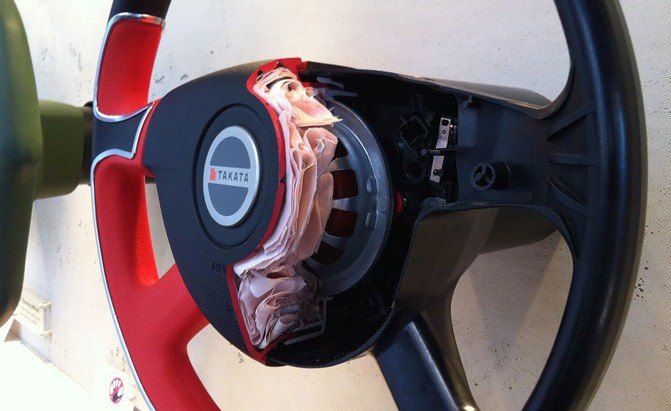






















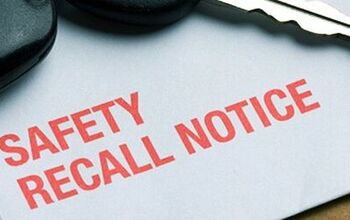
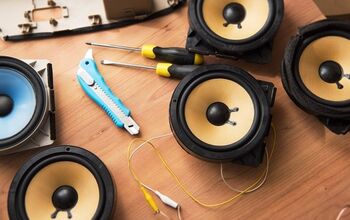

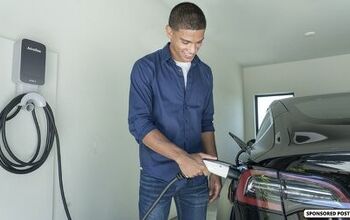



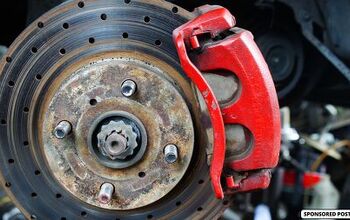

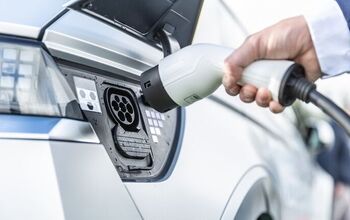
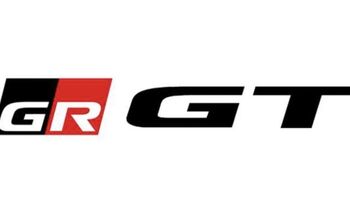




Comments
Join the conversation